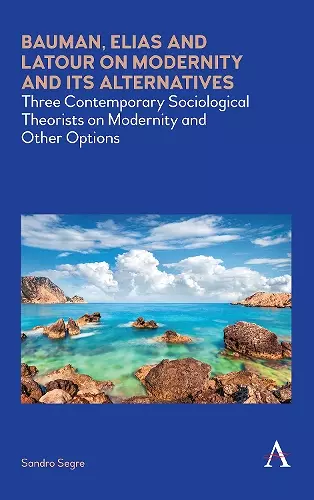Bauman, Elias and Latour on Modernity and Its Alternatives
Three Contemporary Sociological Theorists on Modernity and Other Options
Format:Hardback
Publisher:Anthem Press
Published:31st Mar '20
Currently unavailable, and unfortunately no date known when it will be back

A comparison of the sociological works of three contemporary authors on modernity and its alternatives
'Bauman, Elias and Latour on Modernity and Its Alternatives' summarizes and compares the sociological works of three contemporary authors insofar as they deal with the themes of modernity and its alternatives. These alternatives are either deemed to be possible or actually experienced, whether historically or in the present.
‘Bauman, Elias and Latour on Modernity and Its Alternatives’ provides a comparison between the conceptions of modernity and its alternatives in the works of Bauman, Elias and Latour. Their work and research are linked to their distinct views on modernity and its alternatives. For Bauman, the rationality, effectiveness and impersonality that characterize present-day bureaucratic apparatuses are the distinguishing features of modernity. Its post-modern or ‘liquid’ alternative has none of these traits. For Elias, modernity has two different and contrasting faces, that of civilization and barbarity. Elias conceives of civilization as a process connoted by self-control and pacification, which prevail as a consequence of the restraint which honor and morality exert on individuals. By contrast, the breakdown of civilization involves barbarity. For Latour, modernity if defined by a separation between society and nature, or humans and non-humans, has never existed. By virtue of their intimate association, humans and non-humans have formed hybrids, whose proliferation is the hallmark of our age. Modernity, therefore, has never prevailed. Alternatives to hybrids are, in the current age, failed hybrids. The set of alternatives is then as follows: modernity vs. post-modernity (Bauman); civilization vs. barbarity (Elias); and successful vs. unsuccessful hybrids (Latour).
ISBN: 9781785273049
Dimensions: 229mm x 153mm x 26mm
Weight: 454g
114 pages